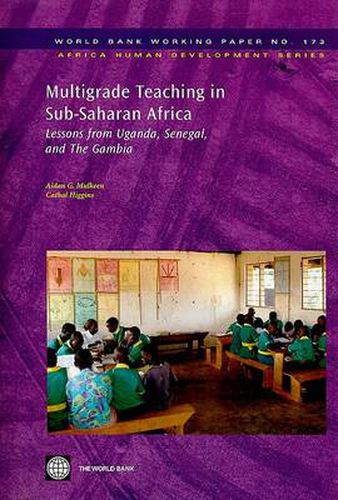Readings Newsletter
Become a Readings Member to make your shopping experience even easier.
Sign in or sign up for free!
You’re not far away from qualifying for FREE standard shipping within Australia
You’ve qualified for FREE standard shipping within Australia
The cart is loading…






In Africa, with the expansion of coverage of primary education in recent decades, many of the remaining out-of-school children are in hard to reach areas, with low population density and poor transport. Providing access to education is challenging in such contexts, as the population in any village is often too small to support a conventional primary school. One of the answers is the use of multigrade teaching, where one teacher works with students of two or more grades. This paper examines the practice of multigrade teaching in three African countries, Uganda, Senegal, and The Gambia. Although these three cases had very different approaches to multigrade, their experiences suggest that multigrade teaching is a promising and cost-effective option, but that successful implementation requires sustained support from policymakers, adequate training of teachers, and careful explanation of the approach to parents and the communities.
$9.00 standard shipping within Australia
FREE standard shipping within Australia for orders over $100.00
Express & International shipping calculated at checkout
In Africa, with the expansion of coverage of primary education in recent decades, many of the remaining out-of-school children are in hard to reach areas, with low population density and poor transport. Providing access to education is challenging in such contexts, as the population in any village is often too small to support a conventional primary school. One of the answers is the use of multigrade teaching, where one teacher works with students of two or more grades. This paper examines the practice of multigrade teaching in three African countries, Uganda, Senegal, and The Gambia. Although these three cases had very different approaches to multigrade, their experiences suggest that multigrade teaching is a promising and cost-effective option, but that successful implementation requires sustained support from policymakers, adequate training of teachers, and careful explanation of the approach to parents and the communities.